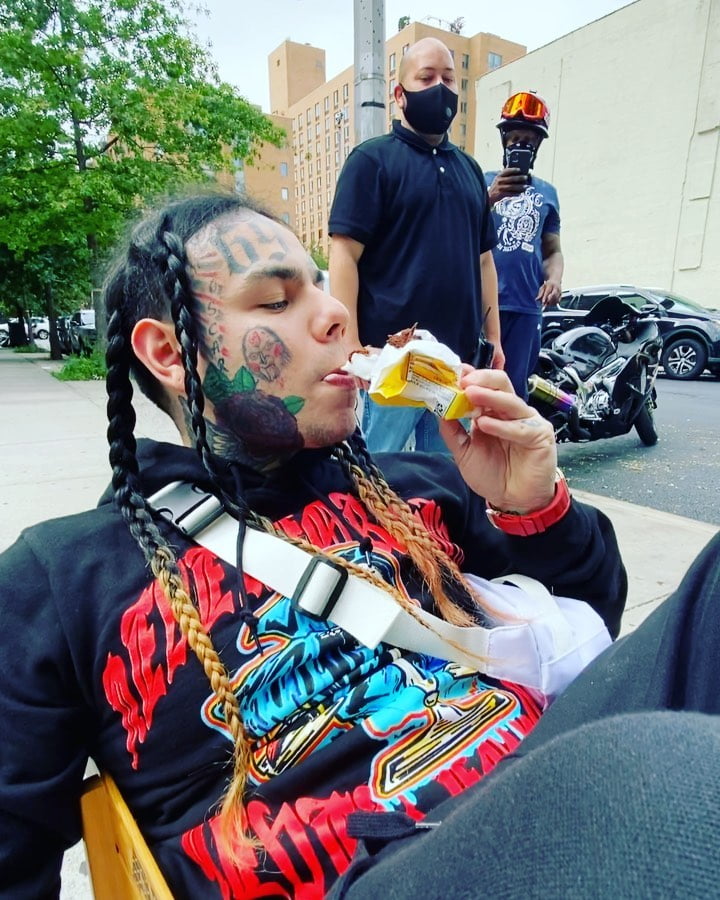Tekashi 6ix9ine is opening up about catching a charge after being caught with an underage girl on video.
Tekashi 6ix9ine had a frank interview with the New York Times on his defiance, admitting why he snitched, feeling guilt for his infamous sex crime, and why he thinks he’s the same as the late Tupac Shakur. The newly freed troll sat down with Joe Coscarelli, touching on his past grievances, felonies, and liberties that have made him one of the most hated figures in hip-hop.
The rainbow rapper fully understands the parameters of his image and reputation and spoke openly on his many misdemeanors. From Nine Trey’s involvement, and the quality of his craft to domestic violence, Tekashi doubled down on everything we pretty much knew and more.
6ix9ine has had a successful post-jail stint, landing at the top of Billboard while still under house arrest. His incarceration is a part of his intrigue, and he elaborated on his decision to testify. Though he doesn’t regret getting involved with the Nine Trey Gangsta Bloods, he says he ultimately cooperated with the feds for his “safety,” “reputation,” and “career.”

He also spoke on his sexual involvement with a minor in the exclusive editorial, saying when he learned the girl was only 13, it “tore him apart.”
“I admit to all my wrongs, right? I pleaded guilty to [using] a child in a sexual performance, and then I took responsibility for that,” Tekashi 6ix9ine said. “The thing with a 13-year-old girl, I was at the wrong place at the wrong time. Listen, I went to this place, and these guys brought this underage girl. I’m filming it, uploading it for the masses to see. When the cops came to get me, I said, what happened? I turned myself in. That tore me apart. My whole life felt like it was coming crashing down. I’m in the interrogation room like, what did I do? “Damn, my life is over.”
Tekashi says he acknowledges and accepts that due to quite a few chapters in his past, the public would continue to ostracize him. He added, however, that he was comfortable in his own skin despite the fear of being “boycotted by the industry.”
The interview also includes his nonchalance to protests against racism and police brutality, thoughts on popular Trump comparisons, and how his mother feels about his attention chasing lifestyle.